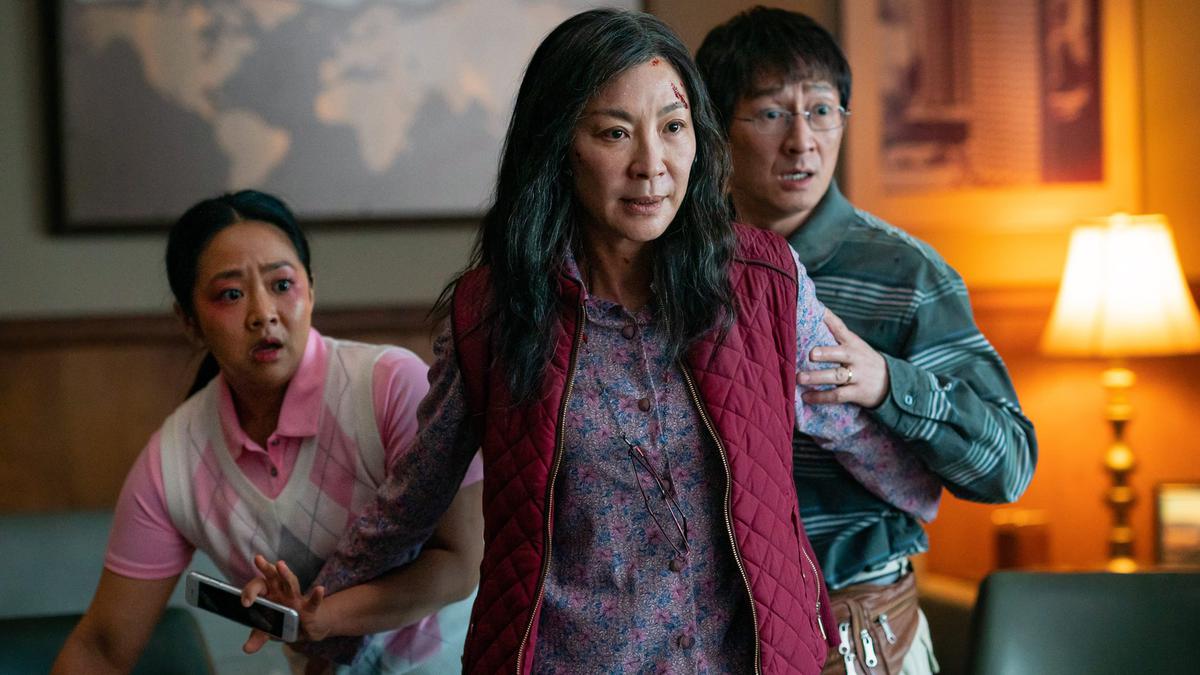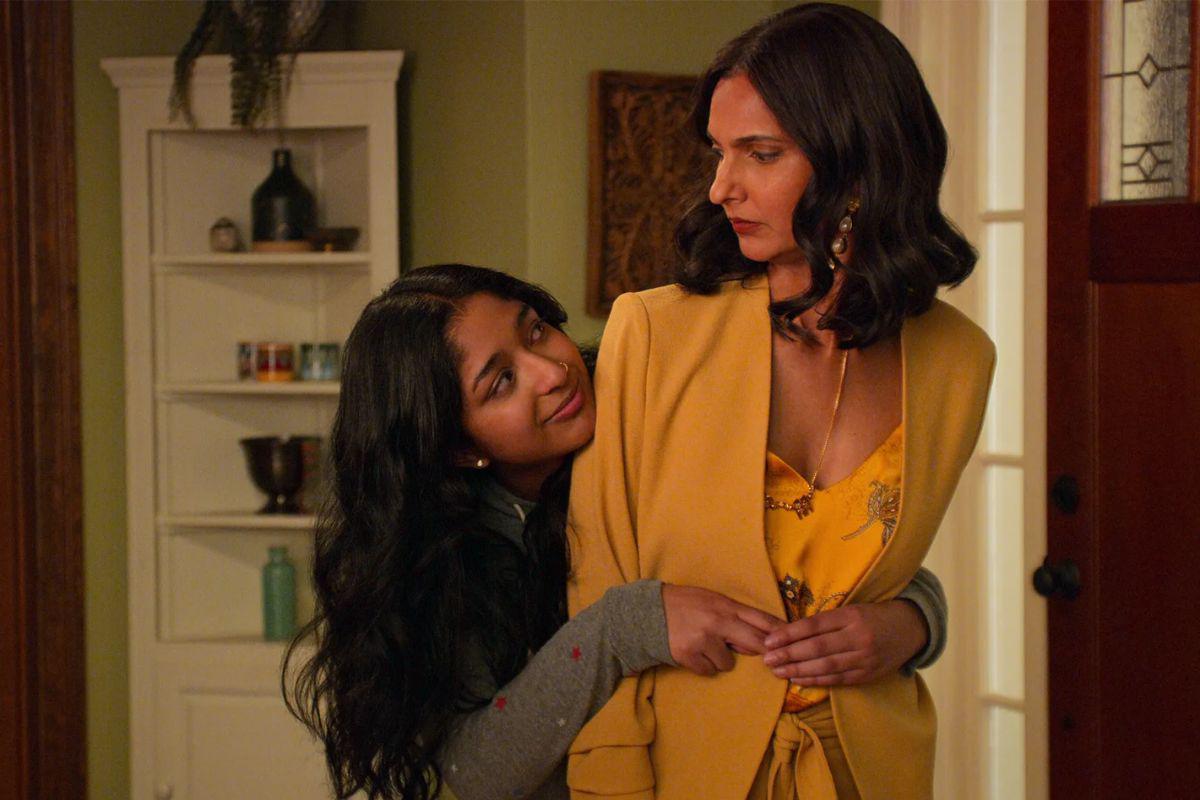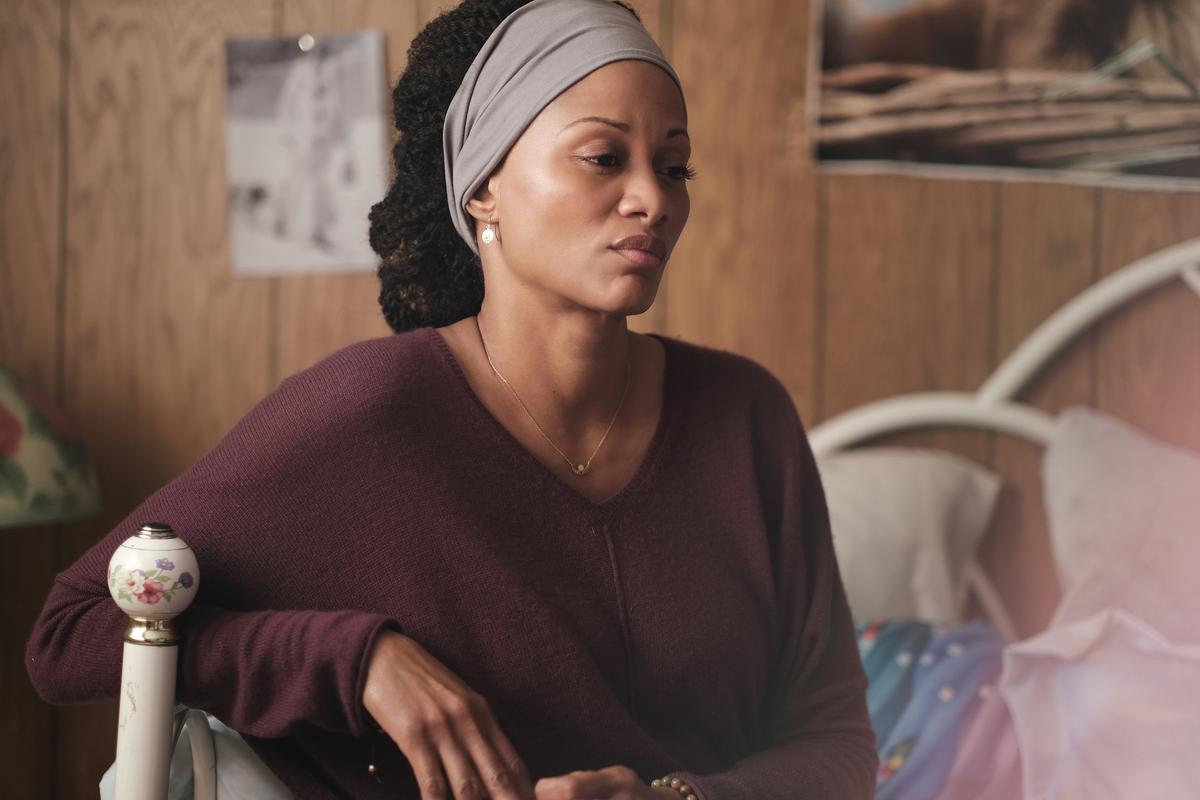[ad_1]
The role of the mother in a story is often undeniable, and even inescapable. We see this in how this additional character is forced into the storyline for it to make sense, like in the case with teen dramas where the protagonist’s childhood affects them in the present. But we seldom see the mother break through to be more than a burdensome necessity; her character is always just developed enough for the viewer to acknowledge, but not care.
This year, however, the mother stepped away from the stereotypes. Instead of being restricted to the usual categories of cringe-y, naggy, smothering or frustratingly out-of-touch, they became complex, dynamic women, whose role as mothers — while still being an inextricable part of their persona — was only a slice of their identity.
This isn’t to say that we haven’t seen mothers be represented as dynamic women in the past. Take the classic Gilmore Girls, which follows the lives of Lorelai and Rory Gilmore, an inseparable mother-daughter duo, who lean on each other as they go through the motions of adolescence and being a single-parent. But with the reliance the two have on each other, coupled with Lorelai’s quirky personality, the focus is more so on her being a “cool mom” than on her own accomplishments as an entrepreneur or a key member of the Stars Hollow community. Even in comedies like Modern Family, which certainly depicts its characters in a realistic and relatable way, Claire and Gloria are, first and foremost, mothers.
Lorelai and Rory Gilmore in ‘Gilmore Girls’
| Photo Credit:
©Warner Bros/Courtesy Everett C
Although this label does not detract from the storylines in either of the TV shows, it does, in many ways, limit the viewer from understanding these women separately from the weight of their relationships with their children or husbands. This is why, the nuance seen on screens in TV shows and movies this year brought not just a fresh take on the mother character, but a rounded one.
Take everyone’s favourite underdog success of the year, Everything Everywhere All At Once, where Michelle Yeoh plays Evelyn Wang, an overworked, stressed, Chinese immigrant mother trying to balance her marriage, her family’s laundromat, and her daughter’s yearning to be accepted. While sitting in a meeting with the Internal Revenue Service, Evelyn is pulled into another universe, where she is selected to fight off a monster, Jobu Tupaki, that is threatening to destroy the multiverse. In a mind-boggling, genre-altering swirl of excitement, comedy, and emotion, we see Evelyn break free from the mould that characters like her are too often stuffed into: traditional, unaccepting, high-strung, unlikeable, as though they are an irritant in the main character’s life.

A still from ‘Everything Everywhere All at Once’
Instead, as Evelyn jumps from one universe to another, we see her for all her potential, whether that be a famous movie star or a kung-fu master. Her chaotic journey to stop Jobu, who in fact is her daughter in her main universe, shows the viewer that this woman encompasses so much more than what her daughter (old-fashioned, unloving and unable to understand her), or husband (neglectful, uninterested) think of her. But perhaps more importantly, the storyline gives Evelyn a chance to rediscover herself and all that she is capable of, no matter the circumstances (even having sausage fingers).
Despite being cliched, Evelyn’s acceptance and reconciliation with her daughter is heartwarming. But the scene gets its power from Evelyn’s journey far more than her daughter’s, a narrative seldom seen in the past.
The same holds true in season three of Netflix’s coming-of-age comedy Never Have I Ever. Dr. Nalini Vishwakumar, played by Poorna Jagannathan, is far more than the strict and caricature-accented Indian immigrant mother – which she could’ve been sidelined to play. Instead, Nalini is given the screen-time to process her husband’s death and reckon with who she is now. In earlier seasons, she pushed herself to date, balancing the guilt of moving on, and dealing with Devi’s grief.

A still from ‘Never Have I Ever’
In the third season, after being rudely reminded that she doesn’t have a social life outside of her workplace and family, she befriends another Indian mother, Rhyah. Over time, we discover Rhyah is not who she seems. Nalini emerges as a strong, fiercely protective mother, defending her family, but also herself. In this climactic scene, her role as the matriarch is undeniable, but made impactful by her continued character development; from her struggle to gauge Rhyah’s friendship, her support for her niece Kamala (who calls off her engagement) to her ability to balance still being a strict but empathetic mother, extending the same grace to Devi that she knows she also needs.
In Euphoria, Rue’s continued abuse of drugs strains her relationship with her mother, Leslie, to new heights. Although Euphoria revolves around Rue’s journey with substance abuse, the impact her actions have on her loved ones and their own personal journeys are not sidelined, but rather showcased, in a traumatic but unapologetic way. Leslie is also dealing with the pain of losing her husband, while also coming to terms with the fact that she might lose her elder daughter too. Her desperation to help Rue shape-shifts to exasperation, and then to (short-lived) hope, naturally throughout the season. The toll taken on Leslie’s mental health is given the space to be understood, allowing the viewer to see her as a woman who’s struggling to understand this new reality she is facing. This development also extends to the other mothers on the show, notably Nate’s mother, who rediscovers herself following the disintegration of her marriage and her tired acceptance that Nate is far from the sweet boy he once was.

Leslie Bennett, played by Nika King, in ‘Euphoria’
What’s special about the mother role is that a character doesn’t have to have a child per se, to be a mother. In Quinta Brunson’s sitcom, Abbott Elementary, her character, Janine, is quirky, selfless and overachieving to a fault. She doesn’t shy away from taking the initiative with the hopes to impress the senior teachers, Melissa and Barbara. Barbara, in particular, is like the mother hen, helping out the other teachers whenever needed, giving her all to her current and former students, all while still maintaining her own social and personal life. For Janine, Barbara encompasses everything she aspires to be, all the more so because of her own mother’s absence.
But to the viewer, Barbara is everything that one would want in a mentor or mother, but she isn’t without her flaws. Over the two seasons, Barbara is challenged to have an open mind about everything, from the clothing choices of some parents to her understanding and accepting her own daughter’s career. She finds herself supporting her colleagues, but learns to overcome her own ego and ask for help when she needs. Without this candid exposition of Barbara’s flaws, you wouldn’t be able to fully grasp and appreciate Janine and her younger colleagues’ struggle to become the incredible teachers they want to be, at a school where finances and support run low.

Barbara Howard, played by Sheryl Lee Ralph in ‘Abbot Elementary’
Interestingly, all the women in these stories are women of colour, with cultural backgrounds also being tightly-knit into the storyline. This begs the question; is this the reason we have seen mothers take on a bigger role? Because in these communities, they are given that importance, making them less of a plus-one but rather the raison-d’etre for the characters that would otherwise be protagonists.
Certainly in Everything Everywhere… and Never Have I Ever, Joy and Devi’s relationship with their mother adds to their own growth rather than being a relatively plateaued, understanding relationship, as is the case in Gilmore Girls. One of the reasons Rue tries to stay sober is for her family. And while Barbara might not be Janine’s actual mother, she is the woman Janine admires and wants to oh-so badly emulate.
[ad_2]
Source link


